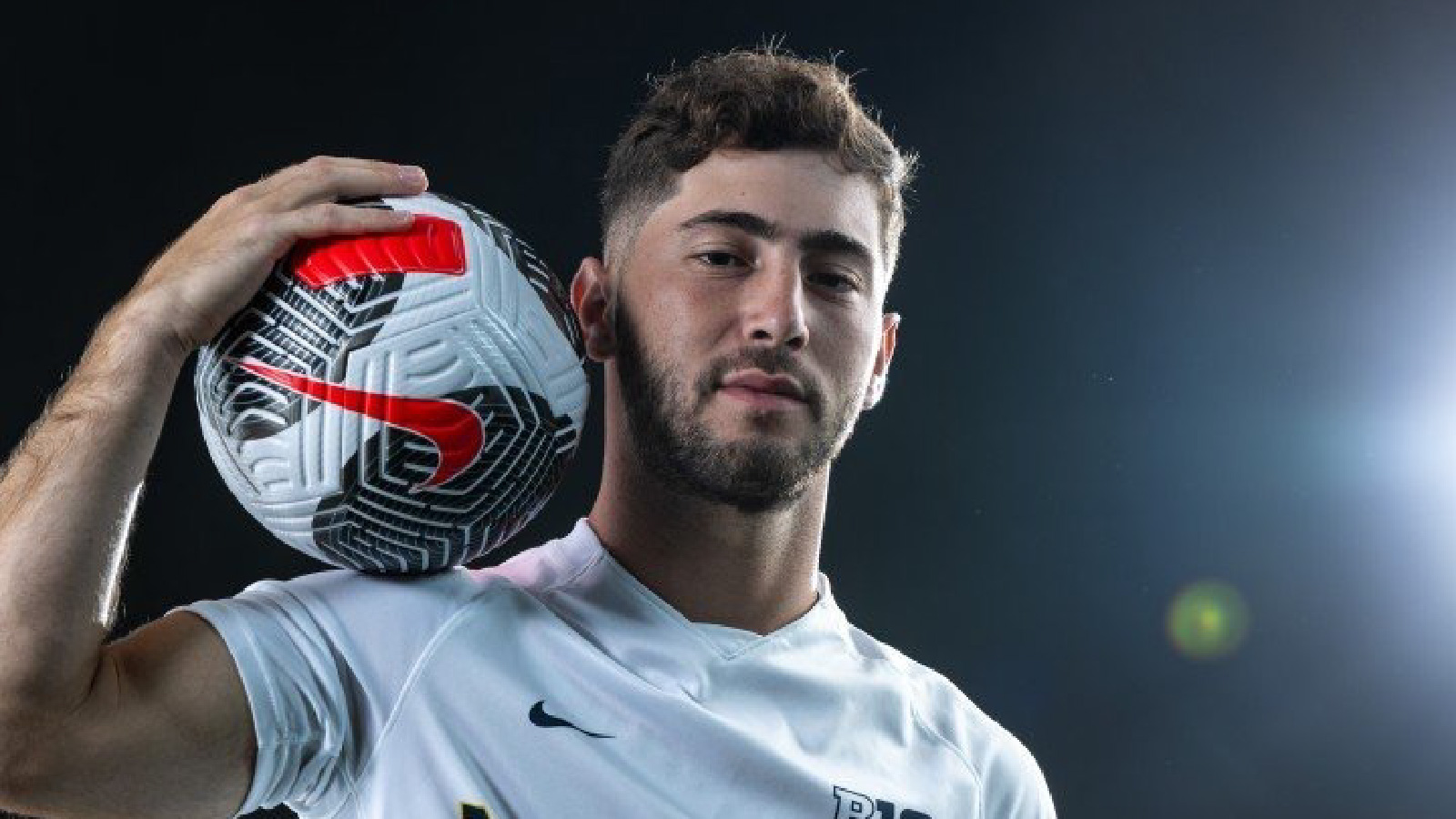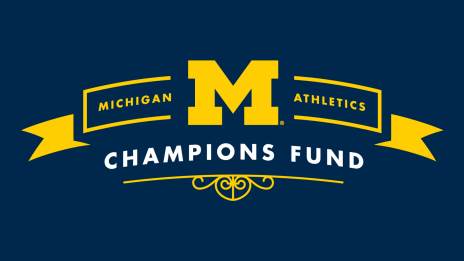By Anissa Gabbara | Photos provided by Uriel Zeitz, Kelly Pahle for Athletes Connected
Student-athletes manage a heavy load on a daily basis—from juggling school, sports, and a social life to coping with injury and performance pressures. These stressors can take a toll on their mental health, and often the stigma surrounding those burdens prevents them from seeking help. But at the University of Michigan, support for students-athletes is available well beyond game day.
Championing mental health
As one of the mental health services provided by the Athletic Counseling Team (ACT) at Michigan Athletics, the Athletes Connected (ACX) program has been working with student-athletes since 2014. A partnership with the School of Social Work and the Eisenberg Family Depression Center, ACX aims to increase awareness of mental health issues in student-athletes, destigmatize help-seeking, and promote coping skills. The program also facilitates peer support groups, provides educational programming, and utilizes research to inform best practices.
Additional resources offered by the counseling team include clinical services (individual and group therapy, crisis intervention) and mental performance services for individuals, teams, and small groups.
“We know that mental health is just as important as physical health,” said Kelly Pahle, director of athletic counseling.
“And we also know that if someone is struggling mentally—and that can be across the spectrum, from confidence in their sport all the way up to depression or anxiety—they’re more prone to injury and more likely to underperform in school, in their sport, and in their future endeavors.
So we think it's important to make sure that we are continuing to address those needs.”
‘A space to connect’
As a member of the Michigan men’s soccer team, Uriel Zeitz (AB ’23) chose to prioritize his well-being. Transferring to U‑M in his junior year, Zeitz sought support following an injury that started to affect his mental health. By participating in the Injury Support Group, restorative yoga sessions, and educational programs and events, Zeitz found renewed strength in his ACX experience.
“It's been a space to connect with fellow student-athletes around a shared goal of helping to support and enhance our mental health,” he said. “It also allowed me to really dive deeper into my own mental health, my own thinking, my own wellness and recovery process in a way that I never had to do before.”
Now, as an ACX intern and a graduate student in the School of Social Work, Zeitz is using his experiences to help support other student-athletes—whether it’s going over the injury recovery process, working with them to enhance their performance skills, or helping them learn how to cope with stress and anxiety.
“Student-athletes, like anyone else, struggle with—and also thrive—in mental health, so I think it’s important for me to try to keep this work going,” Zeitz said.
Setting the standard, synergistically
ACX is making an impact here and around the world. At a recent conference, Pahle met mental health providers to student-athletes from universities in North America and Africa who are incorporating ACX’s videos into their support efforts. Students and educators have told Pahle that they’ve used those videos in classrooms and presentations.
Boasting a large, diverse staff with unique backgrounds, ACT exemplifies U‑M’s distinctive ability to lead in innovative approaches to mental health care for student-athletes. Made possible by donor support, these breakthroughs are making a meaningful difference in their performance, recovery, and wellness.
Restorative yoga, for example, fuses mindfulness, meditation, and intentional relaxation to calm the body and mind. The Reflexion Board, a neurotraining tool, is used to help sharpen the mind, work on hand-eye coordination, and improve reaction time. In combination with specific mental performance strategies and game scenarios, the Reflexion Board helps athletes prepare to manage stress in high-pressure situations. Another donor-funded tool, the FocusCalm headband and app, combines neurofeedback with mindfulness, meditation, and other approaches to help student-athletes find and remain calm and focused.
“Donor support is so important because what we do is really based on people; it takes a large team of trained counselors to provide comprehensive, integrated, holistic mental health and mental performance services to our 29 teams and almost 1,000 student-athletes,” Pahle said. “Because we are embedded and employed by Michigan Athletics and all of our services are free, we believe this reduces barriers to help-seeking and increases student-athlete usage of the services of the Athletic Counseling Team. Donor support is a big reason we can do that.”
Zeitz emphasized that reality as well: “The support from donors is not only important in helping student-athletes, but it's also setting frameworks for what can be used across the country and around the world.”
Words of encouragement
As Zeitz points out, normalizing conversations about and increasing awareness of mental health in athletic spaces is crucial, especially when it comes to reducing the stigma surrounding physical injury and emotional pressure. And as someone who’s been on both sides of the table, he understands why student-athletes can be reluctant to get the help they need, but offers words of encouragement.
“Ultimately, seeking help is not a sign of weakness; it is a sign of strength,” Zeitz said.
“There are so many different avenues you can take to support your mental health, so be proactive and prioritize what's going to be best for you.”






